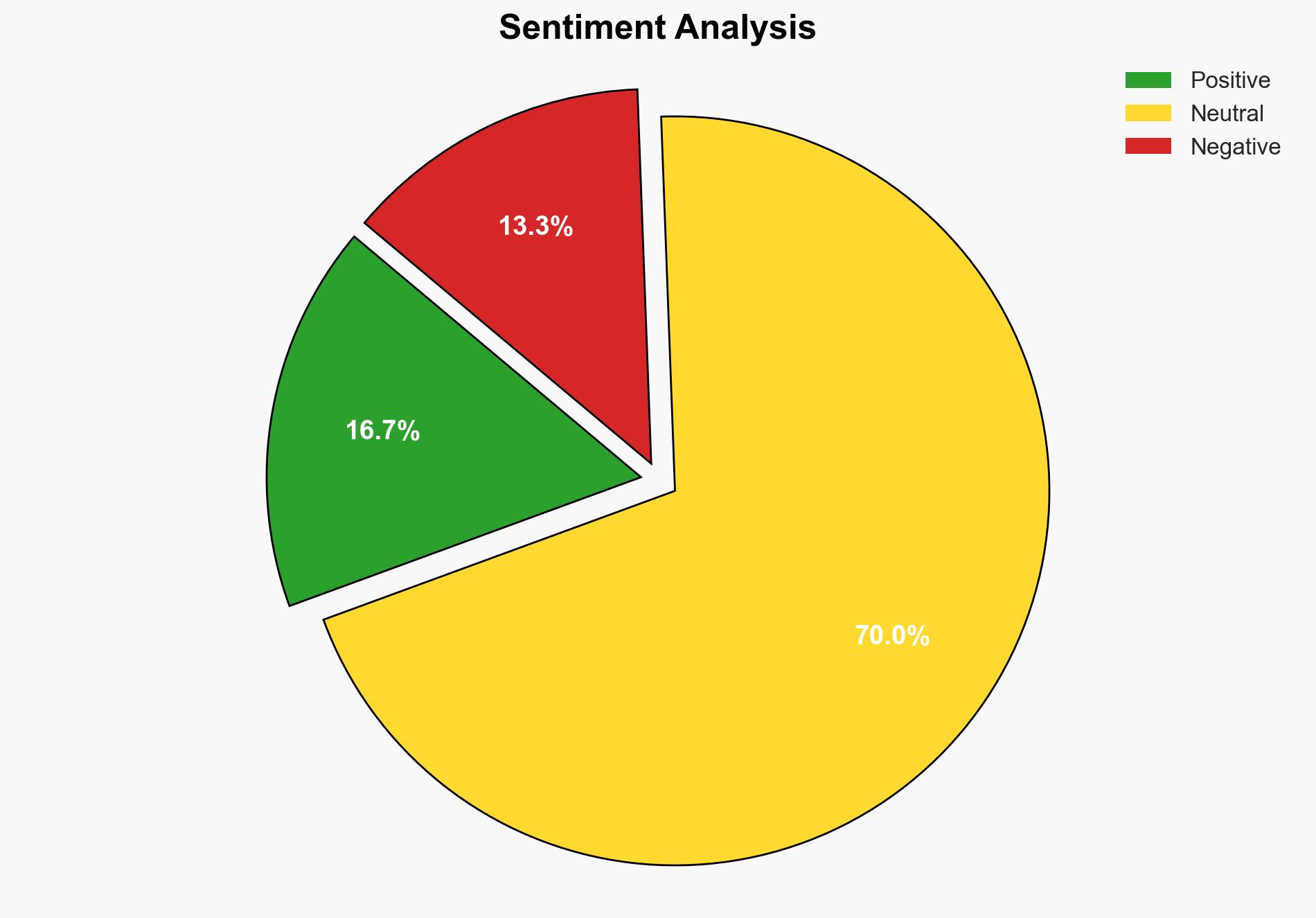China and Russia Unite Behind Iran – Yahoo Entertainment
Published on: 2025-03-14
Intelligence Report: China and Russia Unite Behind Iran – Yahoo Entertainment
1. BLUF (Bottom Line Up Front)
China and Russia have publicly aligned with Iran to denounce sanctions and support efforts to restore the nuclear deal abandoned by Donald Trump. This development signals a potential shift in geopolitical alliances and may complicate diplomatic efforts by the United States and its allies. The meeting in Beijing, attended by key figures from China, Russia, and Iran, underscores a unified stance against unilateral sanctions and highlights the urgency of resuming international talks on Iran’s nuclear activities.
2. Detailed Analysis
The following structured analytic techniques have been applied for this analysis:
General Analysis
The joint statement by China and Russia in support of Iran marks a significant diplomatic maneuver, rejecting the previous U.S. administration’s stance. The meeting in Beijing, involving Ma Zhaoxu, Sergei Ryabkov, and Kazem Gharibabadi, reflects a coordinated effort to challenge U.S. sanctions and promote a multilateral approach to resolving the nuclear issue. The emphasis on dialogue and mutual respect suggests a strategic alignment aimed at counterbalancing U.S. influence in the region.
3. Implications and Strategic Risks
The alignment of China and Russia with Iran poses several strategic risks:
- National Security: Increased cooperation between these nations could undermine U.S. efforts to contain Iran’s nuclear ambitions, potentially leading to heightened tensions and instability in the Middle East.
- Regional Stability: The support for Iran may embolden its nuclear activities, risking further proliferation and escalating conflicts in the region.
- Economic Interests: The geopolitical shift could impact global energy prices and economic stability, particularly if tensions escalate into military confrontations.
4. Recommendations and Outlook
Recommendations:
- Engage in multilateral diplomatic efforts to address the concerns of all parties involved, prioritizing dialogue and negotiation.
- Consider revising sanctions policies to encourage compliance and cooperation from Iran, while maintaining pressure on nuclear non-proliferation.
- Enhance intelligence-sharing and collaboration with allies to monitor developments and mitigate potential threats.
Outlook:
Best-case Scenario: Successful diplomatic negotiations lead to the restoration of the nuclear deal, reducing tensions and fostering regional stability.
Worst-case Scenario: Escalation of hostilities results in military conflict, disrupting global energy markets and exacerbating regional instability.
Most Likely Outcome: Prolonged diplomatic stalemate with intermittent negotiations, maintaining a status quo of tension and uncertainty.
5. Key Individuals and Entities
The report mentions significant individuals such as Donald Trump, Ma Zhaoxu, Sergei Ryabkov, and Kazem Gharibabadi. These individuals play crucial roles in the ongoing diplomatic efforts and geopolitical dynamics surrounding Iran’s nuclear program.





